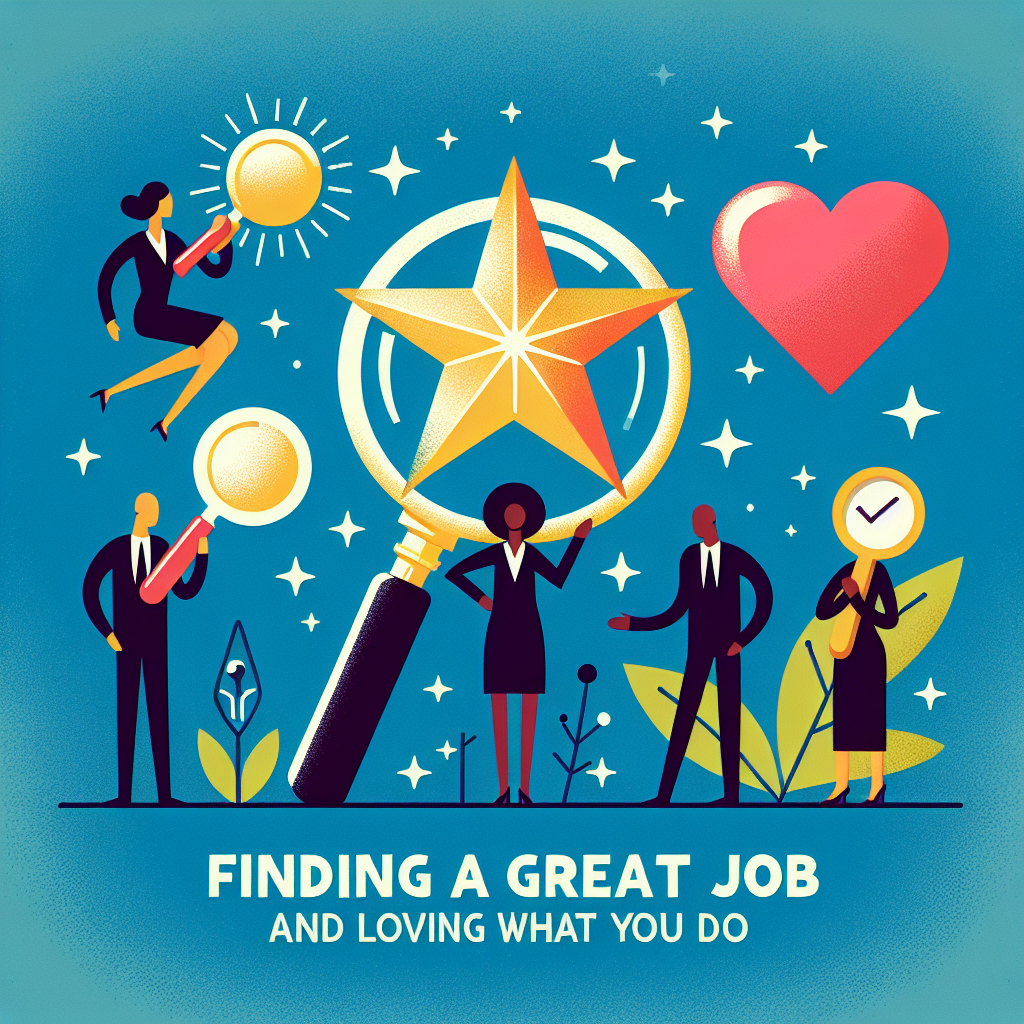How To Find A Great Job? Here’s How To Love What You Do. If that question has been on your mind, this article walks through a practical, step-by-step approach to discovering work that fits your skills, values, and life goals. Finding the right role is part art and part method: clarify what matters, build relevant experience, and learn how to evaluate opportunities so you can make choices that lead to satisfaction and growth.
How to find a great job and learn to love what you do
Start by defining what “great” means for you. For some people it’s creative autonomy; for others it’s stability, team culture, or the chance to make a social impact. Make a short list of non-negotiables (e.g., work-life balance, salary range, professional development) and softer preferences (industry, commute, office vibe). This clarity makes it easier to target roles and avoid time-consuming mismatches.
Skills, strengths, and transferable experience
Inventory your skills: technical abilities, people skills, and domain knowledge. Frame these as accomplishments on your résumé and in interviews. If you’re switching fields, emphasize transferable skills—project management, communication, data analysis—that translate across industries. Build credibility quickly with small projects, volunteering, or short freelance gigs.
Where to look and how to apply
Use a mix of channels: company career pages, professional networks, referrals, and curated job boards. Students and entry-level job-seekers may find specialized listings especially helpful; for those just starting, the ultimate guide to job boards for college students in the USA — free and paid options is a useful resource to discover targeted opportunities and understand the differences between platforms.
- Targeted applications beat mass-applying—customize your résumé and cover letter to each role.
- Network intentionally—informational interviews often uncover unadvertised openings.
- Practice interviewing with peers and record answers to common behavioral questions.
Build a job search strategy that actually works
Organize your search like a project. Set weekly goals (contacts made, applications sent, skills practiced). Track applications and follow-up dates in a spreadsheet. Prioritize quality over quantity: investing time in fewer, well-tailored applications and follow-ups yields better results than firing off dozens of generic submissions.
Culture fit and values alignment
Evaluate companies for culture and values before accepting offers. During interviews, ask about leadership style, decision-making, performance expectations, and professional development. Talk to current or former employees when possible to get unvarnished perspectives. A job that pays well but misaligns with your values can burn out your motivation quickly.
Negotiation and decision-making
When you receive offers, weigh the complete package: salary, benefits, learning opportunities, flexibility, and long-term career path. Negotiate confidently by researching market rates for your role and region. If you’re unsure whether to accept, create a simple pros-and-cons list tied to your earlier non-negotiables; this reduces emotion-driven choices.
Resources for continuous improvement
Make career development ongoing. Upskill through online courses, attend workshops, and request stretch assignments. Keep your résumé and portfolio current so you can move quickly when an ideal opportunity appears. For a primer on skills employers value and how to position yourself professionally, the U.S. Bureau of Labor Statistics offers a helpful discussion of career readiness and essential workplace competencies: career readiness overview from the U.S. Bureau of Labor Statistics.
Mindset shifts that help you enjoy work
Love for your work often grows from competence and connection. Focus on mastering key aspects of your role, seek feedback, and build relationships with colleagues. Celebrate small wins and treat setbacks as learning moments. Over time, these practices increase confidence and intrinsic motivation.
Short checklist
- Define your non-negotiables and soft preferences.
- Map skills to roles and fill gaps with short projects.
- Network, apply selectively, and track your progress.
- Evaluate culture, negotiate thoughtfully, and plan for growth.
FAQ
How long should a focused job search take?
Timelines vary by industry and level of experience. A focused, active search often produces results within 2–4 months, but senior roles or career pivots can take longer. Consistent weekly effort usually shortens the timeline.
Can I learn to love a job that’s not an exact passion match?
Yes. Enjoyment often increases when you build competence, shape parts of the role to your strengths, and connect with colleagues. If the job still conflicts with core values or causes chronic stress, it’s reasonable to keep searching while gaining experience and stability.



